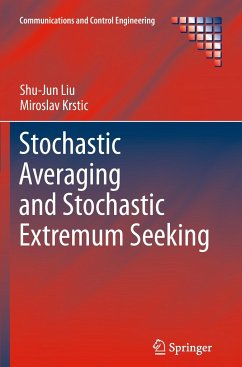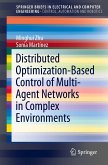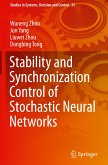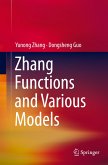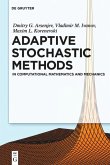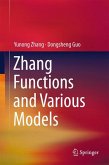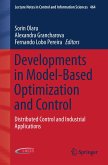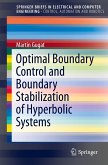Stochastic Averaging and Extremum Seeking treats methods inspired by attempts to understand the seemingly non-mathematical question of bacterial chemotaxis and their application in other environments. The text presents significant generalizations on existing stochastic averaging theory developed from scratch and necessitated by the need to avoid violation of previous theoretical assumptions by algorithms which are otherwise effective in treating these systems. Coverage is given to four main topics.
Stochastic averaging theorems are developed for the analysis of continuous-time nonlinear systems with random forcing, removing prior restrictions on nonlinearity growth and on the finiteness of the time interval. The new stochastic averaging theorems are usable not only as approximation tools but also for providing stability guarantees.
Stochastic extremum-seeking algorithms are introduced for optimization of systems without available models. Both gradient- and Newton-based algorithms are presented, offering the user the choice between the simplicity of implementation (gradient) and the ability to achieve a known, arbitrary convergence rate (Newton).
The design of algorithms for non-cooperative/adversarial games is described. The analysis of their convergence to Nash equilibria is provided. The algorithms are illustrated on models of economic competition and on problems of the deployment of teams of robotic vehicles.
Bacterial locomotion, such as chemotaxis in E. coli, is explored with the aim of identifying two simple feedback laws for climbing nutrient gradients. Stochastic extremum seeking is shown to be a biologically-plausible interpretation for chemotaxis. For the same chemotaxis-inspired stochastic feedback laws, the book also provides a detailed analysis of convergence for models of nonholonomic robotic vehicles operating in GPS-denied environments.
The book contains block diagrams and several simulation examples, including examples arising from bacterial locomotion, multi-agent robotic systems, and economic market models.
Stochastic Averaging and Extremum Seeking will be informative for control engineers from backgrounds in electrical, mechanical, chemical and aerospace engineering and to applied mathematicians. Economics researchers, biologists, biophysicists and roboticists will find the applications examples instructive.
Stochastic averaging theorems are developed for the analysis of continuous-time nonlinear systems with random forcing, removing prior restrictions on nonlinearity growth and on the finiteness of the time interval. The new stochastic averaging theorems are usable not only as approximation tools but also for providing stability guarantees.
Stochastic extremum-seeking algorithms are introduced for optimization of systems without available models. Both gradient- and Newton-based algorithms are presented, offering the user the choice between the simplicity of implementation (gradient) and the ability to achieve a known, arbitrary convergence rate (Newton).
The design of algorithms for non-cooperative/adversarial games is described. The analysis of their convergence to Nash equilibria is provided. The algorithms are illustrated on models of economic competition and on problems of the deployment of teams of robotic vehicles.
Bacterial locomotion, such as chemotaxis in E. coli, is explored with the aim of identifying two simple feedback laws for climbing nutrient gradients. Stochastic extremum seeking is shown to be a biologically-plausible interpretation for chemotaxis. For the same chemotaxis-inspired stochastic feedback laws, the book also provides a detailed analysis of convergence for models of nonholonomic robotic vehicles operating in GPS-denied environments.
The book contains block diagrams and several simulation examples, including examples arising from bacterial locomotion, multi-agent robotic systems, and economic market models.
Stochastic Averaging and Extremum Seeking will be informative for control engineers from backgrounds in electrical, mechanical, chemical and aerospace engineering and to applied mathematicians. Economics researchers, biologists, biophysicists and roboticists will find the applications examples instructive.
From the book reviews:
"This research monograph presents and consolidates new results on the well-known topic of stochastic averaging and in the emerging area of stochastic extremum seeking. ... The monograph develops averaging from scratch for ordinary differential equations in deterministic and stochastic settings. ... This book will be of interest to researchers interested in stochastic search techniques applied to a large variety of engineering systems." (IEEE Control Systems Magazine, October, 2013)
"This research monograph presents and consolidates new results on the well-known topic of stochastic averaging and in the emerging area of stochastic extremum seeking. ... The monograph develops averaging from scratch for ordinary differential equations in deterministic and stochastic settings. ... This book will be of interest to researchers interested in stochastic search techniques applied to a large variety of engineering systems." (IEEE Control Systems Magazine, October, 2013)

